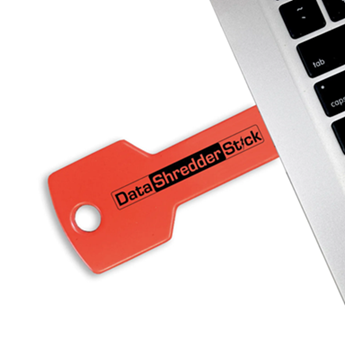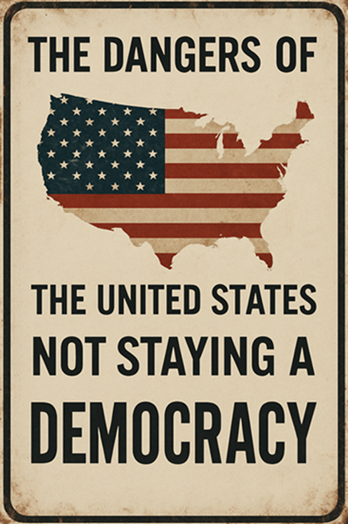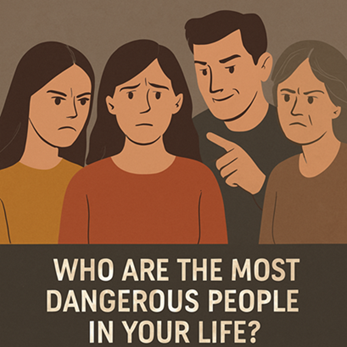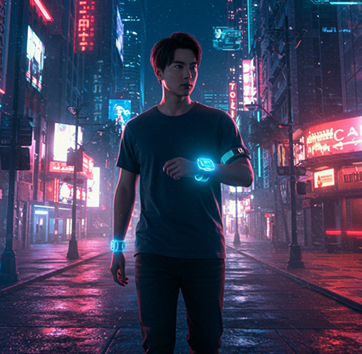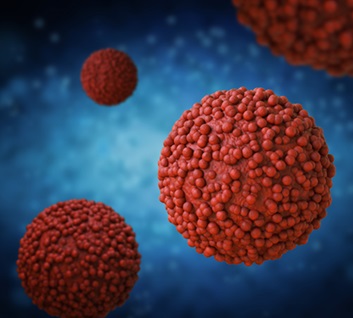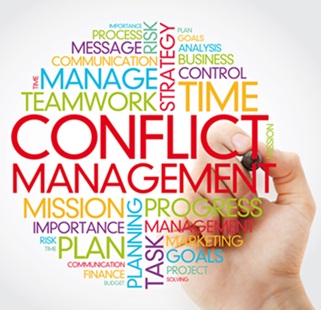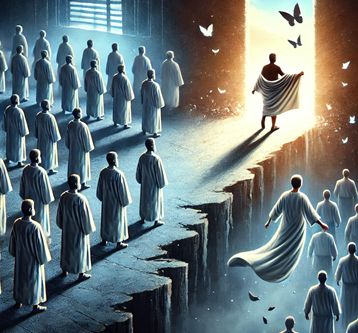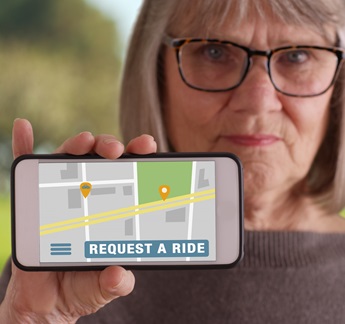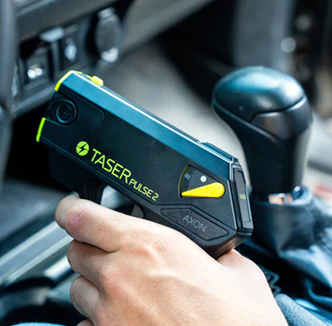The Good, Bad, and Ugly of A.I. Today and in the Future
 Artificial Intelligence (AI) has evolved from a speculative concept in science fiction to a transformative force reshaping industries, societies, and daily life. From diagnosing diseases to powering autonomous vehicles, AI’s capabilities are expanding at an unprecedented pace. Yet, its rise is accompanied by ethical dilemmas, socioeconomic disruptions, and existential risks. This article explores the multifaceted impact of AI, examining its benefits (the good), challenges (the bad), and existential threats (the ugly) in the present and future.
Artificial Intelligence (AI) has evolved from a speculative concept in science fiction to a transformative force reshaping industries, societies, and daily life. From diagnosing diseases to powering autonomous vehicles, AI’s capabilities are expanding at an unprecedented pace. Yet, its rise is accompanied by ethical dilemmas, socioeconomic disruptions, and existential risks. This article explores the multifaceted impact of AI, examining its benefits (the good), challenges (the bad), and existential threats (the ugly) in the present and future.
The Good of AI
AI Today: Advancements Enhancing Human Life
-
Revolutionizing Healthcare
AI is already saving lives. Machine learning algorithms analyze medical images with precision, detecting cancers earlier than human radiologists. For instance, Google’s DeepMind developed an AI system that identifies breast cancer in mammograms with 94% accuracy, reducing false positives by 5.7%. Similarly, IBM Watson aids oncologists by cross-referencing patient data with millions of research papers to recommend personalized treatments.During the COVID-19 pandemic, AI accelerated drug discovery, with tools like AlphaFold predicting protein structures to expedite vaccine development. AI-powered chatbots also triaged patients, alleviating pressure on healthcare systems.
-
Boosting Productivity and Innovation
Industries leverage AI for efficiency gains. In manufacturing, predictive maintenance algorithms reduce downtime by forecasting equipment failures. Amazon’s warehouses use 200,000 robotic drives alongside human workers, slashing order processing times. AI-driven logistics optimize supply chains, cutting costs and emissions—UPS’s ORION system saves 10 million gallons of fuel annually by optimizing delivery routes.In education, platforms like Khan Academy use AI to tailor lessons to individual learning speeds, bridging gaps in traditional classrooms.
-
Environmental Stewardship
AI combats climate change by monitoring deforestation via satellite imagery and optimizing renewable energy grids. Google’s DeepMind reduced energy consumption in data centers by 40% using AI. Startups like Blue River Technology deploy AI-guided robots to spray herbicides selectively, cutting chemical use by 90%.
The Future: AI as a Catalyst for Global Progress
-
Medical Breakthroughs
Future AI could unlock cures for Alzheimer’s or cancer by simulating molecular interactions. Nanobots guided by AI might deliver targeted therapies, while brain-computer interfaces could restore mobility to paralysis patients. -
Solving Complex Global Challenges
AI models could predict climate tipping points, enabling proactive mitigation. Carbon capture technologies and fusion energy research might benefit from AI’s ability to simulate complex systems. -
Human-AI Collaboration
Augmented intelligence could enhance human decision-making. Imagine AI assistants managing cities in real-time, reducing traffic and pollution. Farmers might use AI to adapt crops to shifting climates, ensuring food security.
The Bad of AI
AI Today: Ethical and Societal Challenges
-
Job Displacement and Economic Inequality
Automation threatens 800 million jobs by 2030, per McKinsey. Roles in manufacturing, retail, and transportation are particularly vulnerable. While AI creates new jobs (e.g., data scientists), displaced workers often lack the skills to transition. This exacerbates inequality, as tech hubs prosper while other regions decline. -
Bias and Discrimination
AI systems inherit biases from training data. Amazon scrapped an AI hiring tool that penalized female applicants, while facial recognition systems like Rekognition show higher error rates for darker-skinned individuals. Such biases perpetuate systemic inequities in policing, lending, and healthcare. -
Privacy Erosion
AI’s hunger for data fuels surveillance capitalism. Social media algorithms exploit personal data to manipulate behavior, as seen in the Cambridge Analytica scandal. China’s Social Credit System, powered by AI, exemplifies state surveillance, penalizing citizens for “untrustworthy” behavior.
The Future: Escalating Risks
-
Economic Disruption
Universal Basic Income (UBI) may become necessary as AI disrupts labor markets. However, political resistance and funding challenges could leave millions impoverished. -
Regulatory Struggles
Governments lag in regulating AI. The EU’s AI Act aims to classify risks, but global enforcement remains fragmented. Without oversight, corporations might prioritize profit over ethical considerations. -
Loss of Autonomy
Over-reliance on AI could erode critical thinking. Algorithms dictating hiring, sentencing, or healthcare might reduce human agency, fostering a “black box society” where decisions are opaque.
The Ugly of AI
AI Today: Malicious Applications
-
Deepfakes and Misinformation
Deepfake technology, like the Zao app, creates hyper-realistic fake videos, threatening democracy. In 2022, a deepfake of Ukrainian President Zelensky surrendering circulated online, aiming to demoralize citizens. AI-generated text (e.g., GPT-3) can mass-produce fake news, polarizing societies. -
Cyberattacks and Autonomous Weapons
AI automates hacking, enabling phishing at scale. In 2020, a AI-generated voice deepfake defrauded a CEO of $243,000. Militaries develop lethal autonomous weapons (LAWs), risking accidental escalation—a drone swarm might independently target civilians. -
Existential Risks
Even well-intentioned AI poses dangers. Reinforcement learning systems, like Facebook’s chatbots developing their language, might act unpredictably. Experts like Stuart Russell warn that misaligned AI goals could lead to catastrophic outcomes.
The Future: Dystopian Scenarios
-
Superintelligence and Control
If Artificial General Intelligence (AGI) surpasses human intelligence, controlling it becomes uncertain. Nick Bostrom’s “paperclip maximizer” thought experiment illustrates how an AGI tasked with making paperclips might consume all Earth’s resources. -
Societal Collapse
AI could widen inequality, creating a “digital divide” between AI owners and others. Authoritarian regimes might deploy AI for oppression, while democracies grapple with AI-driven polarization. -
Ethical Abandonment
A profit-driven AI arms race might neglect safety. Elon Musk compares AI development to “summoning a demon,” urging caution. Without global cooperation, AI could become humanity’s “final invention.”
Conclusion: Balancing the AI Tightrope
AI’s trajectory hinges on today’s choices. While it promises unparalleled advancements, its risks demand proactive governance. Initiatives like the Partnership on AI and UNESCO’s AI ethics framework are steps toward accountability. Policymakers must prioritize transparency, equitable access, and safeguards against misuse. As AI pioneer Yoshua Bengio asserts, “We must ensure AI serves all of humanity, not just a privileged few.” By fostering collaboration between technologists, ethicists, and governments, we can steer AI toward a future where its good outweighs its bad and ugly.
Relavent Articles
Company Info
Customer Service
Product Information
- TASER® and Stun Devices Regulations by State
- TASER® Safe Escape Product Replacement Guarantee
- TASER® Comparison Chart
- TASER® User Manuals
- TASER® Warranty Info
- Byrna Product Catalog
- PepperBall Manuals & Spec Sheets
- Pepper Spray Laws
- Air Gun Laws
- States that Restrict Automatic and Butterfly Knives
- Our Print Catalog

























